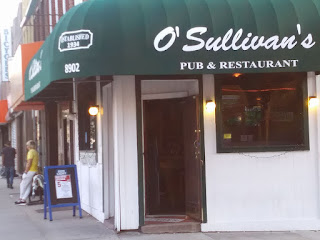Truth be Told

As someone who writes for a living, I have developed a strong distaste for clichés.
Falling back on a worn out phrase insults the reader and cheapens the writer.
There are times when you’ll be forced to drag out some clunker--like when you’re on deadline and your editor is screaming at you to file the story this very second or he'll send you out the door in a body bag.
But even in those stressful times, you can turn the pressure into fuel, letting your mind stretch beyond the familiar to grab hold of something exciting.
One of my least favorite expressions is “truth be told.” It has this faux upper crusty sound to it and, more importantly, it really shouldn’t be necessary.
Why do you have to tell me that you’re telling me the truth? I would hope that you’re telling me the truth all along without having to advertise the fact. Has everything you said before you dropped that phrase been untrue?
This old line came to mind as I listened to the monologist Mike Daisey try to explain the fabrications in his show “The Agony and the Ecstasy of Steve Jobs” to Ira Glass, host of NPR’s show “This American Life.”
TAL had broadcast a portion of Daisey’s show, where Daisey describes his trip to China to speak with workers at Apple Computer factories about harsh the condition they are forced to live under.
The show was TAL’s single popular podcast with 880,000 downloads. And on Friday, TAL retracted the entire story.
I find this very upsetting because I’m such a big fan of both Mike Daisey and TAL. I’ve seen several of Daisey’s shows, interviewed him for a story that publication I was working at that time ultimately decided not to use, and hung around to meet him after seeing “The Last Cargo Cult.”
The Truth is Out There
He is a master storyteller, capable of creating incredible images with his words. I’ve taken some solo performer classes at The People’s Improv Theater and Mike Daisey is a huge name in the business.
I was thinking of seeing the Steve Jobs show on Friday night. The show closed today and the reviews were so enthusiastic that I really felt I should get a ticket before it was too late. And then the retraction story broke.
It was painful listening to Daisey try to explain away the fabrications as “theater” rather than journalism. Such a commanding figure on stage, he sounded contrite and cowed as Ira Glass interviewed him.

There were a few moments when Daisey took so long to respond that I thought the program had gone off the air. But he was actually struggling to come up with answers to some pretty tough questions.
In what critics have called the most dramatic moment in the show, Daisey talks about meeting an old man who been fired from the Foxconn factory after mangling his hand in a metal press.
Daisey tells how he takes out his Ipad, switches it on and shows it to the old man, who has never seen one before. He tells Daisey’s interpreter that the device is “a kind of magic.”
There’s just one problem: the interpreter said it’s not true.
I just can’t buy the “theater” excuse. This may sound terribly naive, but if someone says they went to China and spoke to factory workers then I expect that person to be telling the truth—no embellishments, fabrications or exaggerations.
The truth is too important to manipulate, especially when the subject matter is as serious as the plight of these factory workers. Distortions like these only make the task of trying to help them more difficult.
Daisey gave a prologue to this afternoon’s show, which he posted on his website. In it, he says he stands behind the work and that he has made some changes to it, including a reference to the TAL controversy.
He reminds the audience that story-telling is the oldest form of theater and adds that the “truth is vitally important.”
I’m disappointed, but I’ll still go to Mike Daisey’s shows. Because in spite of all the complaints, I’m still a big fan--truth be told.



Comments
I checked out all the links you left within this post because I wanted to know more about this topic. I honestly had no idea WHO Mike Daisey was, so thank you for introducing me to him.
I listened to his prologue, and I have to agree with you.
"I just can’t buy the “theater” excuse. This may sound terribly naive, but if someone says they went to China and spoke to factory workers then I expect that person to be telling the truth—no embellishments, fabrications or exaggerations."
Amen!
It's one thing to watch a theatrical piece that's fictional. But it's a totally different thing when it comes to a piece that's based on actual facts. Especially when it comes to something as serious as this.
GREAT post, buddy!
I heard about this story/retraction only yesterday, but what I didn't hear was that it was supposed to be 'theatre'. When someone gets up on stage and tells something like this, unless there is a clearly printed notice in the programme stating that it is, in fact, a fabrication, people are going to believe it - especially if the performance is given in a convincing way. I have no love for China or for companies who use their cheap labour to have their products made there, but ... Shame on him. Did he really have no idea of the trouble this would cause for everyone? How daft do you have to be to publicly slander a company like Apple?
I want to say thank you for your kind comments on my blog, too. I'm so sorry you've had to deal with this too.